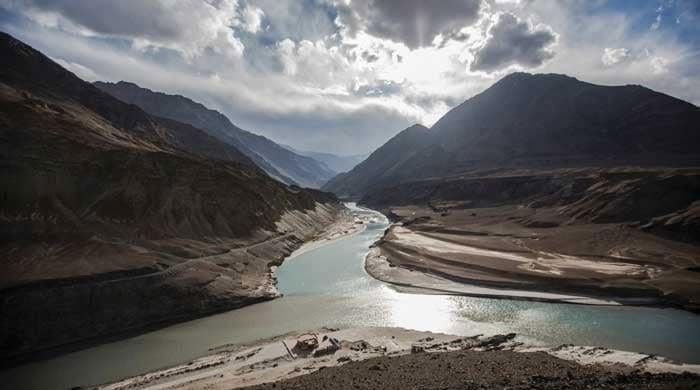India Suspends Indus Waters Treaty Participation Amidst Rising Tensions
India has declared the suspension of its involvement in the Indus Waters Treaty (IWT) with Pakistan. This decision follows the death of 26 civilians in Indian Illegally Occupied Jammu and Kashmir, an event that New Delhi attributes to Islamabad. Pakistan has refuted these accusations. Prior to a ceasefire agreement reached last week, these tensions escalated into the most severe conflict between the two nations in recent decades.
Despite enduring three wars and various conflicts, the treaty has historically weathered fluctuations in diplomatic relations between the two rivals. On May 16, reports indicated that Delhi is weighing potential projects that could diminish the water flow into Pakistan from designated rivers.
India has stated it will keep the treaty suspended until Pakistan demonstrably ceases its backing of cross-border terrorism, while Islamabad insists that any attempt to impede or redirect water flow that rightfully belongs to Pakistan would be considered an act of aggression.
The two nuclear-armed countries hold differing views regarding the utilization of water resources from rivers originating in India and flowing into the Indus River basin located in Pakistan.
The World Bank mediated the Indus Waters Treaty, which both countries ratified in September 1960. This treaty governs the allocation of water resources.
The agreement delineated the Indus River and its tributaries between the two nations, creating a system for water sharing. India obtained rights to utilize water from the three eastern rivers—Sutlej, Beas, and Ravi—whereas Pakistan secured rights to the majority of the three western rivers—Indus, Jhelum, and Chenab.
The existing treaty lacks provisions that permit either nation to unilaterally suspend or terminate the agreement. However, it establishes frameworks for dispute resolution.
Both countries have been involved in protracted arguments and conflicts concerning various projects implemented on the Indus River and its tributaries over several years.
Pakistan relies substantially on the water from this river system to fulfill its hydropower and irrigation requirements. Pakistan claims that India engages in the unfair diversion of water through the construction of upstream barrages and dams, an allegation that India rejects.
Pakistan voices apprehension that India’s dam projects could reduce water flows, which are essential for irrigating 80% of its agricultural land. They have requested the involvement of a neutral expert and then an arbitration court to mediate disputes surrounding two recent hydropower initiatives.
India has accused Pakistan of deliberately delaying the complaint resolution process and maintains that the development of its Kishanganga and Ratle hydroelectric projects complies with treaty stipulations. Moreover, India has proposed amendments to the pact to avoid such delays.
Although the suspension of the agreement is not anticipated to cause an immediate alteration in the flow of water to Pakistan due to India’s limited storage capacity, water levels at a crucial receiving point in Pakistan experienced a significant drop in early May, coinciding with the commencement of maintenance operations on some Indus projects in India.
The suspension of the agreement could introduce instability into Pakistan’s agricultural framework.
Indian officials indicated that the suspension entails the cessation of crucial information sharing and data pertaining to water releases from barrages and dams, as well as flood-related data. New Delhi will also no longer be compelled to release minimum water volumes during periods of low flow.
Pakistan maintains that the treaty is an internationally binding accord facilitated by the World Bank and lacks any provision for unilateral suspension.
Ghasharib Shaokat, who is the head of product at Pakistan Agriculture Research, referred to the treaty as the backbone of the country’s agriculture sector.
Shaokat stated, “It places our agricultural prospects on uncertain terrain. If water flows become unpredictable, the entire system suffers, especially irrigation-dependent crops such as wheat, rice, and sugarcane.”
“Yields might decline, expenses may increase, and food prices are likely to surge. Small-scale farmers, who already operate with narrow profit margins, would bear the primary consequences.”
Khalid Hussain Baath, the chairman of a national farmers’ union in Pakistan, characterized the action as an act of hostility.
Baath stated from Lahore, “This is essentially a declaration of war. We are already facing a water shortage because of climate change. Low rainfall this year, along with minimal snowfall, signifies that the water level is already 20-25% lower than the previous year.”



Comments (0)
No comments yet. Be the first to comment!
Leave a Comment